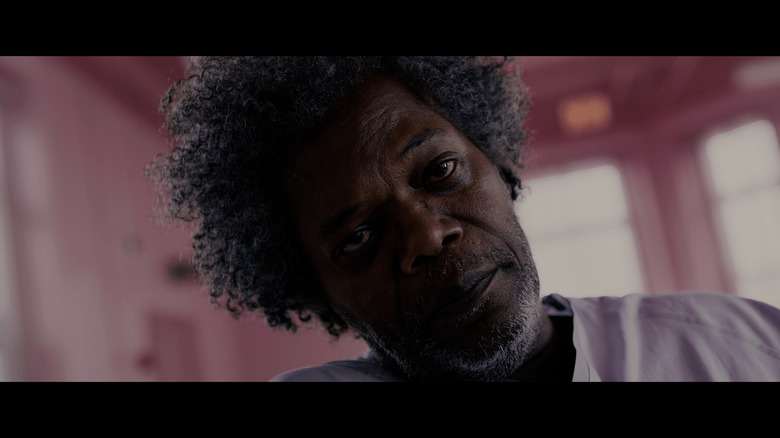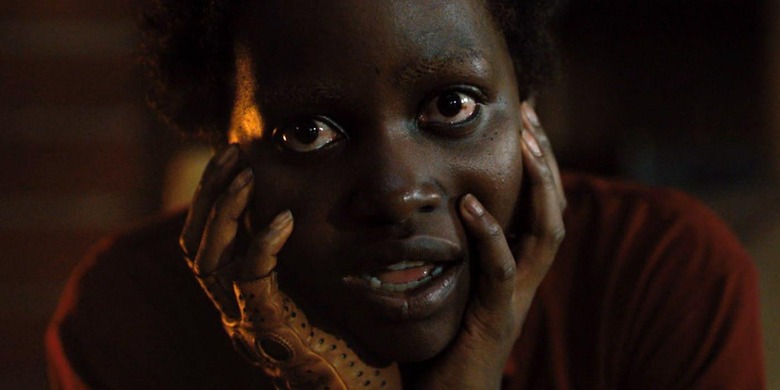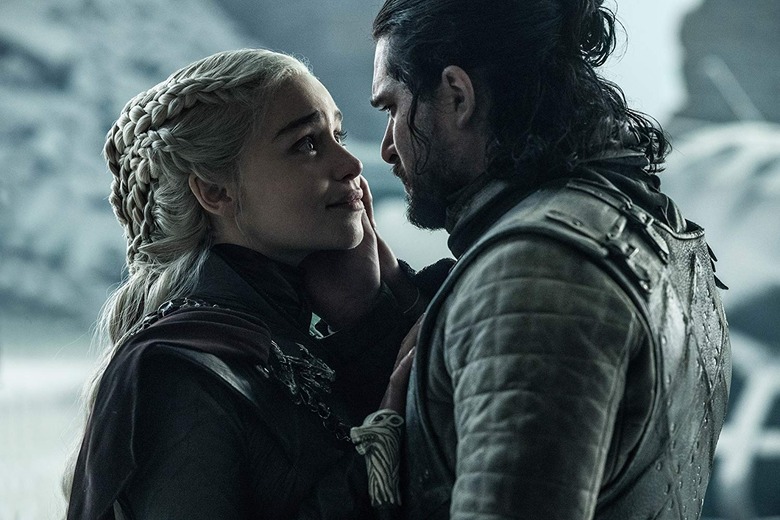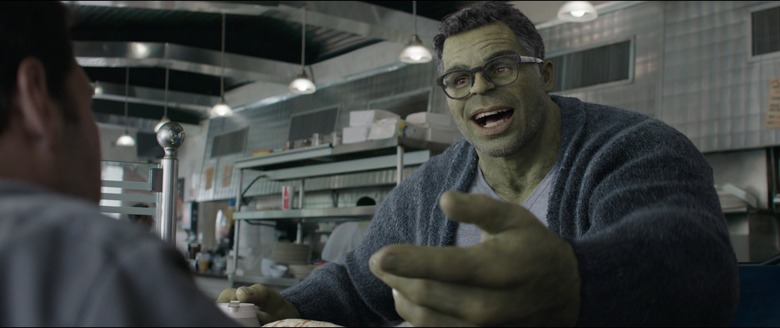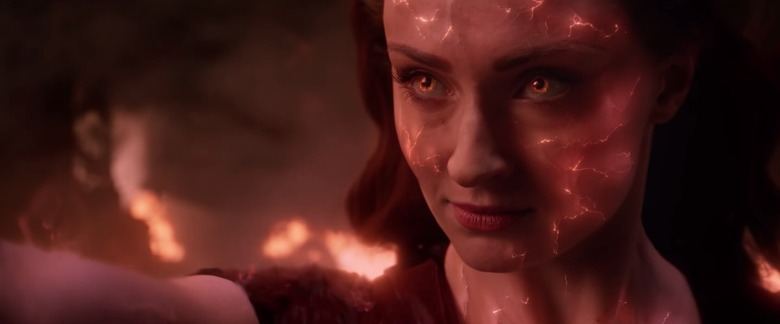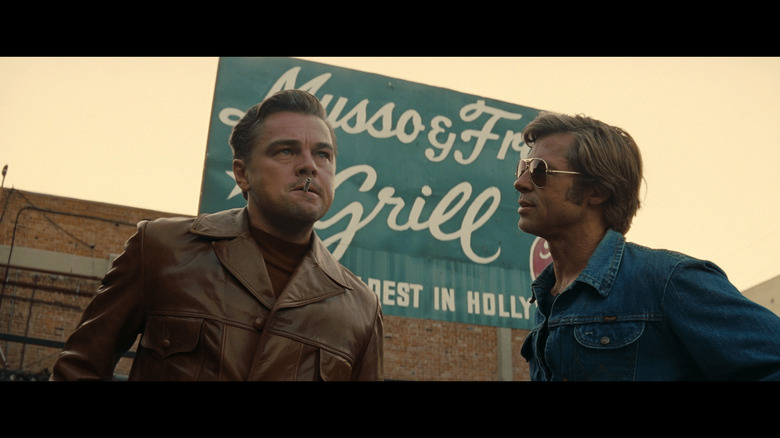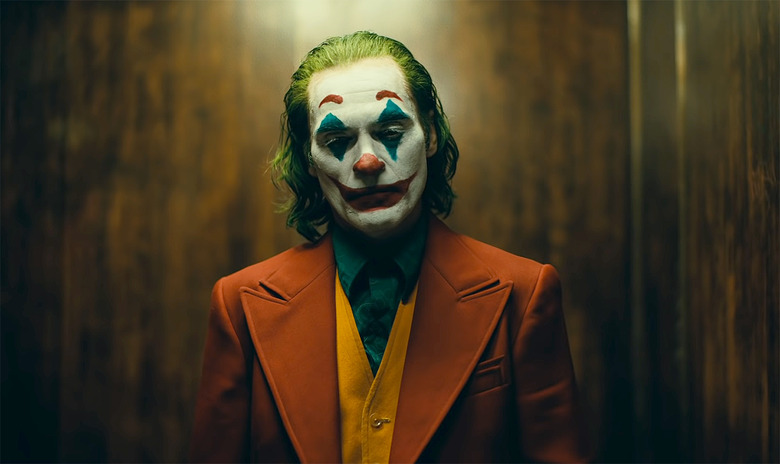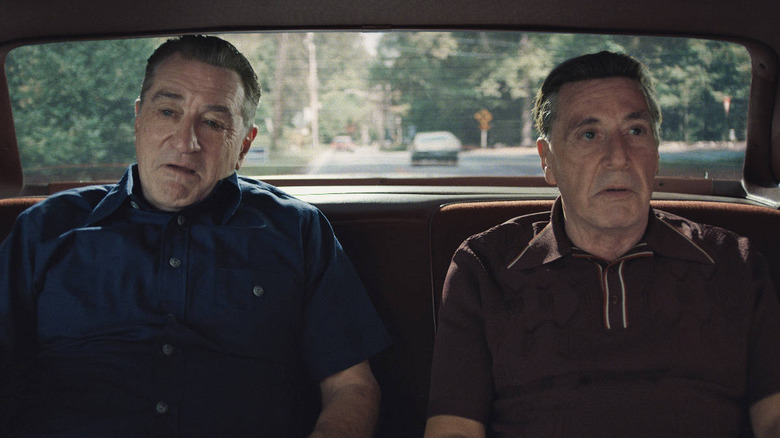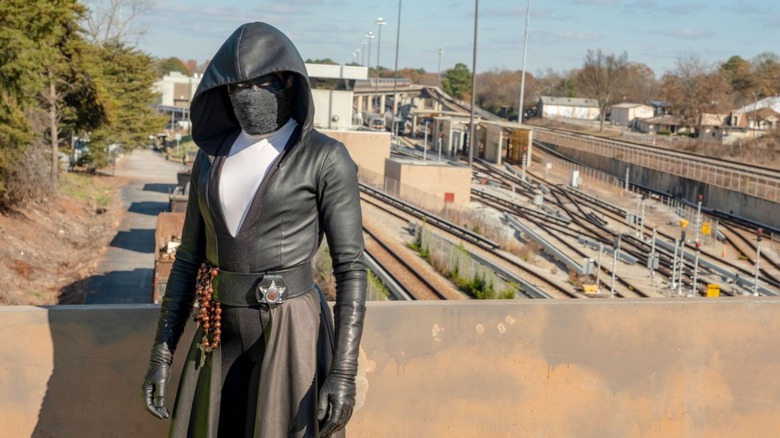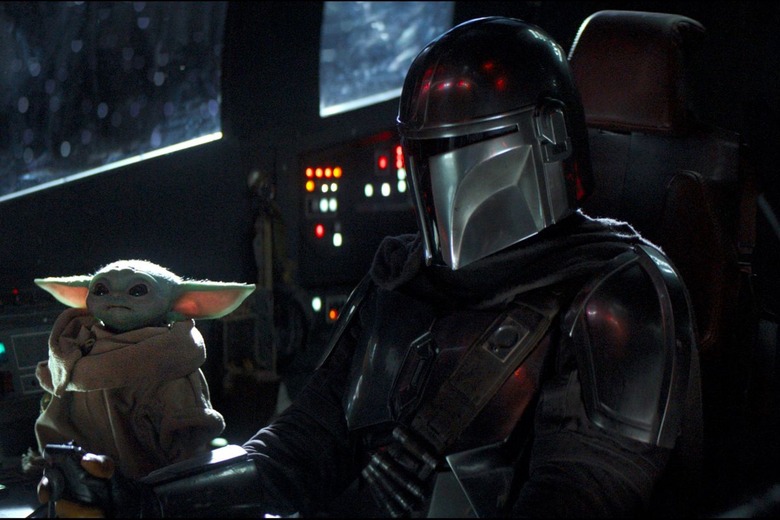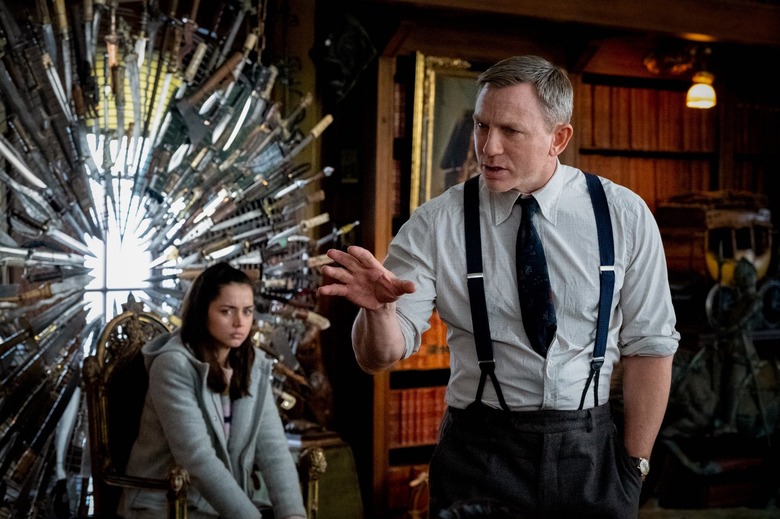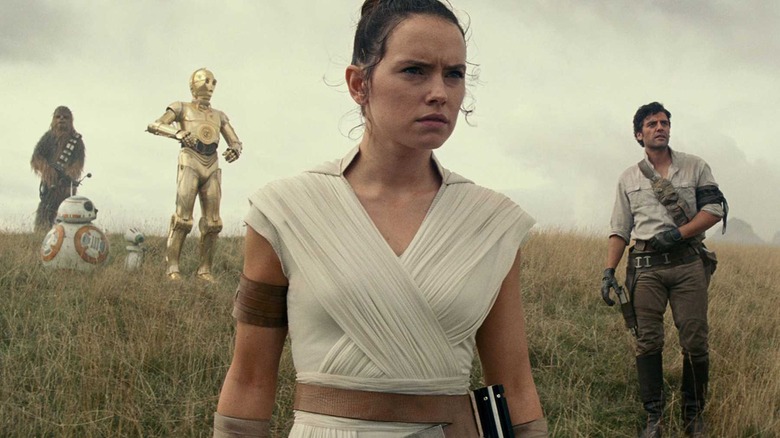2019 Was A Peak-Geek Year – Where Do We Go From Here?
In the 21st century, geek properties have come to define our entertainment culture to the point where some say comic book nerds are now our cultural overlords. Despite false alarms of impending genre fatigue, superhero films dominated the 2010s right up until the end of the decade. In 2019, geek-chic gave way to peak-geek, with saga-ending pop culture behemoths like Avengers: Endgame and Star Wars: The Rise of Skywalker roaming the earth and indeed ruling the worldwide box office. However, "geek" is a broad term that could encompass not only sci-fi/fantasy but also the work of auteurist directors, whose filmographies inspire the same kind of brand-name loyalty among cinephiles. What the term really implies is a certain devotion.
We're all movie geeks. For some fans, a new Martin Scorsese or Quentin Tarantino film, especially one that served as a bittersweet career culmination, might be no less an event than a Disney+ premiere or a Game of Thrones finale. Throw in Joker and a few other wild cards — including the sale of 21st Century Fox and HBO's live-action sequel to Watchmen, the greatest comic book story ever told — and it starts to feel like the deck was pretty stacked this year. In all honesty, there may never be another year like this again, entertainment-wise.
With the real world in shambles ("We're in the endgame now?"), looking back on the escapist highs and lows of 2019 only serves to hammer that home with thundering clarity, like a powered-up Captain America laying the smackdown on any notions of a competing convergence of franchise farewells. Yet amid the perfect storm of geekiness that was 2019, new industry trends also emerged to create a picture of the future landscape of film and television.
The film industry has been undergoing a paradigm shift for years. As far back as 2013, George Lucas and Steven Spielberg — the movie brats who invented the summer blockbuster — were predicting the industry's imminent "implosion." What seems to be happening now with television is a similar breakdown of the old model, with channels giving way to streaming services, each of which offers its own exclusive shows and digital library. I can't speak for everyone, but the four most recent shows I've watched — Watchmen, Castle Rock, The Mandalorian, and Servant — were all on different services (HBO, Hulu, Disney+, and Apple TV+, respectively.) All but one of them were essentially remixes based on existing properties, which just goes to show that that phenomenon has spread to television now, too.
With this movie and TV yearbook, we'll dig back through the highlights of 2019 and examine their implications for the 2020s. There are twelve months in a year and while we won't be hitting every month here, we will be taking a chronological look at twelve larger-than-life events that defined the peak-geek year. Spoilers and allusions to spoilers are fair game, so skip a section where needed ... and be prepared to venture off-the-beaten-path here and there. Glass and Dark Phoenix might not be the first movie titles that come to mind when you think "peak-geek," but while these two superhero films drowned in a puddle of bad reviews, they brought the genre full circle to its modern inception in 2000. That was the year of the first X-Men movie and M. Night Shyamalan's Unbreakable—a film way ahead of its time.
January - Glass Half Full or Empty?
Inert though it may have been, Glass presented an interesting case study for the New Year. Climaxing with a suicide mission, the first big movie of 2019 played like Shyamalan's own cinematic self-immolation, as if he just sat down in the middle of Hollywood Boulevard and set his legacy on fire like a misunderstood monk. It's a work that nakedly reflects his weaknesses as a storyteller and the moribund state of a movie industry where corporations control the narrative and super-powered talents like Scorsese are confined to Netflix.
For years, Shyamalan had languished in director's jail, a prisoner, perhaps, of his own unwavering self-belief. Between The Village and The Visit, his filmography entered a kind of catatonia not unlike the state feigned by the titular Mr. Glass (Samuel L. Jackson), with whom he indubitably shares a mastermind complex.
Split's resounding comeback success, two years prior, allowed Shyamalan to make a short-lived escape, leaving the backdoor open to a surprise sequel where he would show the world how there was a conspiracy to stifle its superheroes (here rendered as a metaphor for creative people). It's a message he so desperately wanted to bring to the world that he was willing to self-finance the film and use it to enact his own dimestore Thor: Ragnarok—killing off beloved characters and dismantling his superhero mythology.
Back in January, if you watched Glass as a straight superhero film, then it might have seemed pointless for it to spend so much time trying to convince its characters they weren't superhuman. What Shyamalan really wanted to say was there in that line, "Belief in oneself is contagious." Glass might not have made it past the anticlimactic parking lot puddle, but with its viral-video riff on Rorschach's Watchmen journal, it entreated the viewer to unlock his or her own inner superhero. Shyamalan quickly moved on from there to Servant, which helped Apple TV+ enter the streaming wars in November. It wasn't the only web television show we saw this year with episodes around half an hour long (more on that later).
March - A Glimpse of Us Untethered from IPs
If horror acts as a release valve for troubled times, that may be why we've seen so many great horror movies like Us coming down the pike in recent years. Based on an original screenplay untethered, so to speak, from any surefire intellectual properties, Jordan Peele's sophomore hit was a strange and beautiful anomaly. Made for $20 million, the film recouped its budget and then some with a $255 million global haul. In doing so, it showed that all hope was not lost when it comes to exciting new writer-directors thriving in the franchise-clogged film industry.
Filmmakers like Shyamalan and Tarantino have become brand names in and of themselves, but we're a long way from their original '90s heyday. It feels like the next Shyamalan or Tarantino might have a harder time breaking through now to commensurate big-screen success. Peele had a leg up on the situation in that he was already famous as one half of the sketch comedy team Key & Peele. You wouldn't necessarily expect an entertainer with that resume to cross over into directing horror films, but here we are, and the lives of horror geeks are better off for it.
Us was the sort of sophisticated, high-concept crowd-pleaser that might have left some filmgoers scratching their heads even as it kept them riveted to their seats. Lupita Nyong'o gives a phenomenal turn as a young black matriarch and her scissor-wielding doppelgänger, and Winston Duke is a much of a joy here as he was in Black Panther. With this home invasion thriller (which is oh-so-much more than that), Peele took a more arthouse approach to horror, cementing his nascent auteur status after winning the Best Original Screenplay Oscar for his first feature, Get Out. To be sure, Us offered a more abstract piece of social commentary than Get Out. When I sat down to watch it, I was intrigued and entertained and I thought, "Now, that's a movie," but the meaning of it all eluded me on a first viewing.
So what is Us about? Well, it's about "us" versus "them" and how they, them, whoever they are, whichever tribe, are really just our doppelgängers: dark reflections of us and the lies we tell. Hands stretch across America in a wall of Republican red, but what really matters is the shifty-eyed motorist who wears the mask of your family member. Where is this stranger driving you? If you saw the movie and were confused by anything, I highly recommend reading Jacob Hall and Ben Pearson's exploration of Us and its themes. Let's hope Us wasn't just a fluke and there are more challenging original movies like Peele's in the 2020s.
Mid-April to May - A Losing Game of Thrones
It's amazing to think that the biggest, most heavily pirated TV show of the decade unfolded its final season while the highest-grossing movie of all time was enjoying its theatrical run. Peak-geek, ladies and gentlemen: that's it right there in a nutshell. Premiering in April, the eighth season of Game of Thrones reached its midway point the same weekend that Avengers: Endgame stormed multiplexes. If nothing else, the overlap between these two pop culture phenomena would ensure 2019 a place in the annals of geek history.
As I wrote in my series review, the best and worst aspects of Game of Thrones serve as a time capsule of the 2010s. Equal parts controversial and critically acclaimed, the show dominated pop culture discussion for seven straight seasons, only to come in for a spectacular crash landing in its eighth. That's not so much a knock against its storytelling — which admittedly did get sloppier toward the end — as it is a recognition that there was a huge backlash against the show for not sticking the dragon landing as well as it could have. Fans have such a high standard now that it doesn't take a crystal ball to see more pitchforks and petitions to rewrite shows coming in the 2020s.
Every season of Game of Thrones holds a Tomatometer rating of 90% or higher ... all except the last season, which plunges to 58% like a winged terror dive-bombing King's Landing. The audience score for the last season plunges even lower to 31%. That's pretty remarkable and pretty unfortunate but as the boss says in The Irishman, "It is what it is."
America put out a hit on Game of Thrones after its series finale. In May, after "The Iron Throne" aired, a fractured toe led me to hunker down at home and — over the course of about a week — rewatch all of seasons 6, 7, and 8 along with scattered clips from the first five seasons. I came away feeling that Game of Thrones might hold up better in the future for viewers who watch it all the way through on home media, without long breaks between episodes or seasons. With so many streaming services out there now, the Home Box Office network, HBO, is hardly unique anymore; but its subscribers have the return of Westworld to look forward to in 2020. As for Thrones, it may well be the last show of its kind, a must-see event every week that was able to cut through the noise and grip a global audience as part of the same communal TV viewing experience.
Late April - A Winning Avengers: Endgame
2019 was a big year for Marvel Studios, and not just because it unleashed Avengers: Endgame, the 3-hour conclusion to its 11-year, 23-movie Infinity Saga. In March, the studio delivered Captain Marvel, its first female-led superhero film. In July, Spider-Man: Homecoming served as an Infinity Saga epilogue and almost marked the end of the Sony-Marvel partnership (though we can expect to see Spidey finish out his MCU trilogy, at least, now that the two studios have reached a new deal).
The summer movie season would bring a number of other big sequels like Toy Story 4, but none of them could match the weight of Endgame. Marvel's mega-sequel broke Avatar's record as the highest-grossing movie of all time. Its entertaining time heist ended in a quasi-religious scene where humanity defeats death thanks to the sacrifice of a bearded man. You know his name: Tony Stark. Robert Downey, Jr., the highest-paid actor of the 2010s, stole the gauntlet and the limelight back from the star of Infinity War, Thanos (whose name does derive from the Greek word for death, thanatos).
The moment when the dead and dusted heroes come stepping through the portals to save the day parlayed the resurrectionist tendency of comics into an emotionally charged movie moment. We got a Smart Hulk, a Fat Thor, and Steve Rogers finally got his dance with Peggy Carter. The end. And what an end ...
There's an argument to be made that the Russo Brothers are the directors who defined the decade: not because they were the most masterful filmmakers, per se, but because they were able to consistently succeed on the highest level within the tentpole-obsessed, producer-controlled environment that Hollywood became in the 2010s. Is Marvel bulletproof? Going into the 2020s, it may continue to rule the box office, but now that the light on Tony's arc reactor has gone out, I'd venture to say that it's been to the mountaintop and might move downhill a bit. With a slate of shows coming to Disney+ and movies like Black Panther II and Shang-Chi and the Legend of the Ten Rings on the way, the future of the MCU is more diverse, not only in terms of casting but in terms of viewing options.
June - Fall of the Dark Phoenix
Like Glass, Dark Phoenix was spearheaded by a single writer-director, something of a rarity in a genre rife with co-writers (and even co-directors, with Captain Marvel and Avengers: Endgame having both employed those). The unity of vision, if you want to call it that, wasn't enough to drum up much interest around the watercooler. Despite serving as a bookend to nineteen years worth of X-Men movies, Dark Phoenix only registered as a short summer blip on the pop culture radar. It was here and then it was gone and if you thought about it afterward, it was probably more because you were dreaming of the day that the X-Men franchise would finally escape Bryan Singer's shadow and join the MCU.
Making his directorial debut with Dark Phoenix, screenwriter and producer Simon Kinberg offered theatergoers the X-Men: The Last Stand redo that no one ever asked for, and it proved to be the worst-reviewed and lowest-grossing film in Fox's franchise. X-Men: Apocalypse had already squandered the goodwill of critics and audiences toward the decade-jumping reboot film series that began with X-Men: First Class. Dark Phoenix just made it official that this superhero franchise would end not with a bang but with a whimper.
Actually, Captain Marvel did the '90s better and this year's proverbial rising Phoenix was nowhere near X-anything. No, he was over in the mirror applying his clown makeup to be in a different comic book movie. (I'm thinking of a name that slant-rhymes with "walking," as in, walking out of the occasional interview.)
The bigger story regarding the X-Men this year was their return to Marvel as part of the Disney/Fox merger. With Disney having distributed six of the highest-grossing films this year (it co-produced a seventh, the aforementioned Spider-Man: Homecoming), its multibillion-dollar acquisition of 21st Century Fox brought it one step closer to world domination, or at least a child-devouring movie monopoly. Pixar, Marvel, Lucasfilm, Fox: the Mouse House owns practically everything now. It's safe to say that we can expect Disney to dominate the box office more in the 2020s.
July - Once Upon a Time in Tarantino’s Hollywood
With his background as a video store clerk and penchant for pop culture references, Tarantino built his brand on film geekery. Once Upon a Time in Hollywood could be his last or second-to-last movie, but either way, with its burning Nazis, LAX mosaics, and other callbacks to previous Tarantino films, it feels like a fitting summary and sendoff to his directorial career. The movie's historically revisionist ending gives the Manson Family the same treatment that Tarantino gave Hitler in Inglourious Basterds. When a crane shot follows stuntman Cliff Booth's car into a dirt lot where he lives in a trailer with his pit bull, the sight of an oil derrick working calls to mind a similar scene in Jackie Brown.
Over and above the real-life fate of actress Sharon Tate (here played by a radiant Margot Robbie), the film's hyper-referentiality presumes knowledge of Hollywood history, too. The scene where Cliff visits the Spahn Ranch and encounters the Manson Family ranks among the tensest of Tarantino's filmography, partly because we have the extratextual knowledge that these "hippies" are capable of murdering a pregnant woman. At the same time, when Damian Lewis appears poolside at a Playboy Mansion party and starts explaining the characters' relationships, younger viewers who know nothing of Steve McQueen (or The Great Escape, which factors in later) may just be left wondering who that guy with the sideburns is.
Generational unease is at the heart of Once Upon a Time in Hollywood. Like The Irishman, Tarantino's love letter to late-'60s L.A. deals with men facing obsolescence, used up by the machine: in this case, not the Mafia, but the movie industry. Here, the lurking decrepitude of a digitally de-aged Robert De Niro and Joe Pesci was preempted by the middle-aged ruggedness of Leonardo DiCaprio and Brad Pitt. Dicaprio displays a raw vulnerability as washed-up TV star Rick Dalton, who tears into his scene as the "evil sexy Hamlet" of cowboys and then wells up with tears and pride after being complimented on his acting.
We're fifty years removed from the time depicted — when Old Hollywood was transitioning to the New Hollywood era — yet it feels like we're at a similar crossroads. Rick could just as easily be the face of a boomer and '90s indie-film poster boy, questioning his continued relevance as the mid-budget drama teeters on the verge of extinction and audiences migrate away from theaters to streaming platforms.
October - The Joker’s on You
If the "comicsplaining" moments in Glass felt inelegant, even forced, that may be because it wasn't really about comics or superheroes. It was attempting to co-opt the current popularity of those tropes per Shyamalan's late-career M.O. as an exploitation filmmaker. In October, Todd Phillips would do something similar with Joker, a film that followed the lead of Shyamalan's Split to promulgate a whole new sub-genre of supervillain origin stories on celluloid. Seeing the greatest comic book villain of all time get his own movie definitely feels like an expression of "peak-geek." Nothing is undreamable anymore: they could make a movie about Batman's teen sidekick, Robin, next and it wouldn't be surprising.
The fact that you've got these filmmakers trying to sneak dark dramas into the theater under the guise of superhero flicks just goes to show what a tight hold those flicks currently have on the public imagination. Superhero cinema shows no signs of letting up in the 2020s and if the 2010s are any indication, we can expect to see increasingly more sophisticated takes on the genre coming through the studio pipeline, as talents both in front of the camera and behind it seek to keep their careers going by working within the system of popular entertainment.
This applies to other franchises outside the genre, too, such as James Bond, which was once the province of journeymen directors but now regularly woos more prestigious names like Sam Mendes and Cary Joji Fukunaga. For its part, Joker turned heads when it won the Golden Lion, the top prize at the Venice International Film Festival (something unheard of for a comic book movie). Shored up by an Oscar-worthy Joaquin Phoenix performance, the film showed us a horribly awkward Clown Prince of Crime with a short-lived reign. He's a Joker for the Twitter age, who only lives to stir the tempestuous teapot.
In my spoiler review of Joker, I called it "a disturbing, incendiary portrait of the villain as antihero." The week of the movie's release, the director of Taxi Driver and The King of Comedy — both of which influenced Joker — was quoted in an interview sharing some off-the-cuff thoughts about Marvel movies. That's a perfect segue into our next section ...
Early Oct. to Nov. - Conversational Car Bombs with The Irishman
I was one of the few people on Earth, apparently, who wasn't so enamored of The Irishman, but Scorsese's 3.5-hour crime drama bears inclusion here for several reasons. From early October, when his print interview with Empire hit newsstands, to at least early November — when The Irishman went into limited theatrical release and he himself wrote an op-ed in The New York Times — the Scorsese vs. Marvel debate was a significant source of watercooler discussion. Fans and filmmakers alike became embroiled in the controversy over what "cinema" is and who gets to define it. Our greatest living director was out there in the press saying that Marvel movies are "not cinema" but rather something more akin to theme park experiences.
Scorsese's comments betrayed a slightly elitist attitude but they were also clearly born of an artist's frustration at being relegated to the sidelines while superhero films ran roughshod over dramas in the marketplace. The ensuing online debate was partially fueled by geek love, the proprietary feelings that Marvelites have toward their own relationship with the all-time top-grossing film franchise. Fans rose up to defend the thickly armored Goliath (Marvel) while the slingshot-bearing David (Scorsese) gained enough publicity for his movie to have it become an early Oscar frontrunner. In the end, maybe everybody won or maybe nobody won and everybody is entitled to his or her own opinion (including but not limited to aging masters of the cinematic art form).
In the background of all this, there was the sad figure of Frank Sheeran. De Niro's character in The Irishman spends his whole life serving the mob, but at the end of his life, he's got nothing to show for it. In his blind, company-man devotion to bosses, the working-class hitman has betrayed people he cares about, losing friends and family and landing himself in a nursing home where the nurses don't even recognize Jimmy Hoffa—the stubborn old rockstar of a union leader who walked tall in Frank's eyes until he was forced into a position where he had to paint a house with the man's blood.
In this equation, who was the real Sheeran and who was the real mob and who was the real Hoffa? Was it, respectively, you and me, Marvel, and Scorsese? You decide, but let's hope the awards buzz for The Irishman emboldens studios to take chances on riskier movie material in the 2020s. Lest we forget, Pulp Fiction was a Disney movie.
Late Oct. to Dec. - Watching the Watchmen on HBO
If Game of Thrones disappointed, then Watchmen was a pleasant surprise for HBO viewers. There was every reason to believe this series might not work. While visually stunning, Zack Snyder's 2009 film adaptation of the Watchmen graphic novel had already missed the live-action mark. Showrunner Damon Lindelof had also been involved in the mishandling of other cherished geek properties, having held co-screenwriting duties on Prometheus and Star Trek Into Darkness.
Trading nuclear tensions for racial tensions, Watchmen showed us a black Batwoman and not one but two black Supermen. After the first couple of episodes, audience members had already pieced together the identity of Hooded Justice, the first superhero in the Watchmen universe. Louis Gossett Jr. was a treasure as Will Reeves. His interactions with his granddaughter, Angela Abar (a standout Regina King) formed the backbone of this show's exploration of race and secret history.
Viewers were more surprised to learn that the all-powerful Dr. Manhattan had been living right under their noses. Watchmen replaced the CG muscles and white and nerdy voice of Billy Crudup with the sturdy frame and flat baritone of Yahya Abdul-Mateen II. I don't know how well the Laurie Blake-centric episode or the reveal of Jeremy Irons as Adrien Veidt would land for someone who had never read the graphic novel, but even if it did pivot from innovative remix to conventional sequel at times, Watchmen still managed to be the year's all-around most satisfying TV experience.
Like The Mandalorian (or Lindelof's own Lost and The Leftovers, for that matter), Watchmen showed how much texture a good original soundtrack could add to a television series. The music, composed by Trent Reznor and Atticus Ross, was collected in three volumes, which were released one at a time after every three episodes over the course of the show's nine-episode run. The Mandalorian went even further and released eight whopping volumes, one for each episode in its first season. I can't remember a time when soundtrack releases were staged in such an eventful manner during a show's airing. That could be a hint of what's to come in the 2020s: more shows that are soundtracked like films, with shorter seasons that follow a miniseries model. HBO isn't out of the superhero game yet, either. It has a Green Lantern series in development for its own upcoming streaming service, HBO Max.
Nov. to Dec. - A New Hope for Star Wars … The Mandalorian
In mid-November, the streaming service Disney+ launched, with the first live-action Star Wars TV show, The Mandalorian, as its flagship series. Created by Jon Favreau, whose remake of The Lion King was the second highest-grossing film this year behind Avengers: Endgame, The Mandalorian drew a new dot on the Star Wars timeline between Return of the Jedi and The Force Awakens. It also kept up the connection between Star Wars and Japanese cinema.
If you've ever seen Shogun Assassin — the movie the Bride and her daughter watched together in Kill Bill, Vol. 2 — then you may have recognized some plot similarities between it and The Mandalorian. Its story of a bounty hunter on the run with a child of the same species as Yoda, the Jedi Master, drew from the same source material: namely, the manga Lone Wolf and Cub. (In Road to Perdition, you can see Lone Wolf and Cub further reenacted as a Depression-era mob movie starring Tom Hanks.)
New original music by Ludwig Göransson lent The Mandalorian a cinematic feel, while the overall production design on its eight-episode first season sometimes made it feel like the kind of syndicated sci-fi/fantasy show you would see on network television every Saturday circa the 1990s. Instead of a wooden cart on wheels, the titular Mandalorian, or "Mando," played by Pedro Pascal of Game of Thrones fame, had a hovering space stroller with Baby Yoda in it. It wasn't really Yoda, of course, just a green alien like him, but the Internet decided that this cutie's name was going to be Baby Yoda and no one has ever looked back.
To quote the Ugnaught vapor farmer voiced by Nick Nolte: "I have spoken." That catchphrase of his caught on, and Baby Yoda, for his part, became such a ubiquitous meme that even now, you'd be hard-pressed to go a day without seeing him in your Twitter timeline. For better or for worse, this could be a hint of the future. It wouldn't be all that surprising if manufactured meme-power became more of a litmus in the 2020s, with shows living or dying by the viability — or viral-ability — of their images on social media.
On this particular meme-friendly series, instead of a Shogun, there was Carl Weathers. Comedians like Horatio Sanz, Amy Sedaris, and Bill Burr would also show up among the many guest stars, as The Mandalorian remixed familiar Star Wars iconography, showing us bounty hunters who looked like Boba Fett and IG-88, but tweaking their design and giving them different names. In among the returning Sandcrawlers and AT-ST Walkers, the show also worked in elements of Akira Kurosawa's Seven Samurai.
Late November - Knives Sheathed for Knives Out
A funny thing happened in November 2019. Critics started gushing about a new Rian Johnson movie. Big surprise, right? That hadn't happened since Looper, right? This time, however, the audience score on Rotten Tomatoes weirdly aligned with the critics. What was going on here?
The answer was Knives Out, which served as something of a vindication for Johnson and fans of his previous film: the polarizing but no less thematically rich Star Wars: The Last Jedi. Billed as a whodunit, Knives Out was the kind of nutty, knotty murder mystery where moviegoers could see James Bond don a Kentucky-fried accent and Captain America tell people to eat shit. That's all you need to know.
Among other things, the geek thrill of seeing Daniel Craig and Chris Evans cast against type, sharing scenes, was enough to put butts in theater seats on Thanksgiving weekend. As private detective Benoit Blanc, Craig was free to chew the scenery in a way he never had, delivering lines like, "I anticipate the terminus of gravity's rainbow," and, "The donut hole has a hole in its center." To play his motley crew of contemporary murder-mystery archetypes, Johnson also roped in other actors with notable ties to superhero and horror fare like Jamie Lee Curtis, Michael Shannon, Don Johnson, Toni Colette, and Lakeith Stanfield.
The real star of Knives Out, however, was Ana de Armas, who will play a Bond girl next year opposite Craig in No Time to Die. Politics were peripheral to the plot of Knives Out but they play a vital role in unpacking the film's subtext. Armas plays Marta, a nurse with "a regurgitative reaction to mistruthing." She's the daughter of an illegal immigrant and she finds herself surrounded by the affluent white heirs of her dead patient in their "ancestral family home." The Thrombey family, one of whom is an alt-right troll, argues about politics in front of the fireplace, with glancing mentions to asshole leaders and children being kept in cages.
Johnson followed a different career pattern than Peele. His trajectory was more akin to that of Christopher Nolan, who had three good movies under his belt before he tackled a tentpole feature and who would continue to alternate projects like The Prestige and Inception with Batman movies. Like Us, Knives Out showed a positive path forward for writer-directors to shoot scripts based on original ideas in the 2020s. Johnson and cast members of his like Kelly Marie Tran had become geek lightning rods after The Last Jedi, but people didn't know, maybe, what a bad Star Wars sequel truly looked like until this year.
December - Mando Catches Up with The Rise of Skywalker
It wasn't just the Infinity Saga that ended this year. It was also the Skywalker Saga. That's really the last big geek event of 2019. It was an event forty-two years in the making. Alas, in the face of mixed-to-negative reviews, Star Wars: The Rise of Skywalker comes away looking less like a peak and more like a trough in both the movie year and its own venerable franchise history.
21st-century Star Wars arguably peaked with its 2015 comeback or the franchise's fortieth anniversary in 2017. Failing to outrun its own poor plotting, The Rise of Skywalker showed that there's more to a gratifying blockbuster than just a collection of set pieces and recycled story beats and a fan-service checklist designed to ameliorate the most vocal contingent of geeks.
Not to undersell the movie as an event, but it suffers in comparison to The Mandalorian, which — despite its visual echoes and televisual production values — was less content to repeat the same plot points as the original Star Wars trilogy. Even when The Mandalorian took viewers back to the Mos Eisley cantina on the planet Tatooine, it showed the effects of time, as the once-bustling bar with the no-droids policy was now a ghost town inhabited by droid bartenders. Scenes like that and the funny scene with bantering Biker Scouts (directed by Taika Waititi) somehow rang more truthful than anything in The Rise of Skywalker.
Aesthetically and chronologically, The Mandalorian's closest Star Wars cousin was probably Rogue One, and indeed, it would show us Death Troopers as it built toward its season finale. Watching The Rise of Skywalker the same week as "The Reckoning," the penultimate episode of the show's first season, might have given some fans a new appreciation for The Mandalorian and how it continued to carry the Star Wars torch, even as The Rise of Skywalker buckled under the pressure of appeasing both fans and corporate interests while scrambling to undo parts of The Last Jedi and wrap up the full nine-episode Skywalker Saga.
It's sort of like the girl- or boy-next-door: you took The Mandalorian for granted until a big sexy December blockbuster broke your heart and sent you running back into the arms of your small-screen comforts. With Favreau's series returning for a second season on Disney+ in 2020, and Star Wars movies on hiatus until 2022, the mood around the blockade runner is now, "Help us, Mandalorian. You're our only hope."
In the long run, the most revolutionary thing about The Mandalorian, beyond its Star Wars franchise legacy, may prove to be the shorter, freeform length of its episodes. This is something that we saw other shows like The OA, Castle Rock, and Servant experimenting with in 2019. Unshackled from the bonds of the hour-long drama format, showrunners are beginning to toy with half-hour episodes in subscription video-on-demand services. That might be the way of the future as our attention spans grow more fragmented and are scattered to the streaming winds.

